Brian Wilson, leader, songwriter and producer of the Beach Boys, has passed away at age 82.
He leaves behind a legacy of beautiful, joyous, bittersweet and enduring music, crafted over a career spanning six decades.
While this news isn’t unexpected – Wilson was diagnosed with dementia last year and entered a conservatorship after the loss of his wife, Melinda – his passing marks the end of a long and extraordinary chapter in musical history.
A life of music
Formed in the early 1960s in Hawthorne California, the Beach Boys were built on a foundation of family and community: brothers Brian, Dennis and Carl Wilson, their cousin Mike Love, and school friend Al Jardine.
Growing up, the Wilson household was a turbulent place; their father, Murry Wilson, was strict and at times violent. Music was the one way in which the family could connect.
During these early years Brian discovered the sounds that would shape his musical identity: Gershwin, doo wop groups, early rock and roll, and, a particular favourite, the vocal group the Four Freshmen, whose tight-harmony singing style Wilson studied meticulously.
Photo by Michael Ochs Archives/Getty Images
It was an unexpected combination of influences for a pop band. Even from the Beach Boys’ earliest recordings – the surf, the cars, the girls – the stirrings of the complexity and musical adventurousness Wilson is known for is audible. Listen to the unexpected structure of The Lonely Sea (1962), the complex chords of The Warmth of the Sun (1963), or the subtle modulation in Don’t Worry Baby (1964).
These early innovations hinted at a growing creativity that would continue to evolve over the rest of the 1960s, and beyond.
A story of resilience
In later years, Brian Wilson often appeared publicly as a fragile figure. But what stands out most in his story is resilience.
His ability to produce such an expansive and diverse catalogue of work while navigating difficult family relationships, intense record label pressures, misdiagnosed and mistreated mental health conditions, addiction and much more, is extraordinary. Wilson not only survived, but continued to create music.
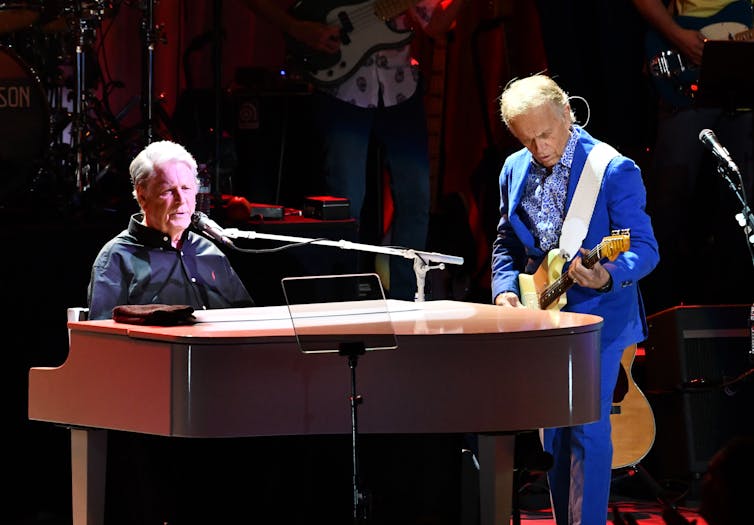
Scott Dudelson/Getty Images
He eventually did something few Beach Boys’ fans would have imagined – he returned to the stage.
Wilson’s unexpected return to public performance during the Pet Sounds and SMiLE tours in the early 2000s began a revival interest in the Beach Boys, and a critical reconsideration of their musical legacy. This continues with a consistent release of books, documentaries, movies and podcasts about Wilson and the legacy of the Beach Boys’ music.
The focus of a thesis
I grew up near Surfers Paradise on the Gold Coast in Queensland. Their early songs about an endless summer had a particular resonance to my hometown, even if, like Brian Wilson, I only admired the beach from afar.
I chose to study the Beach Boys’ music for my PhD thesis and spent the next few years charting the course of their musical development from their early days in the garage to creating Pet Sounds just five years later.
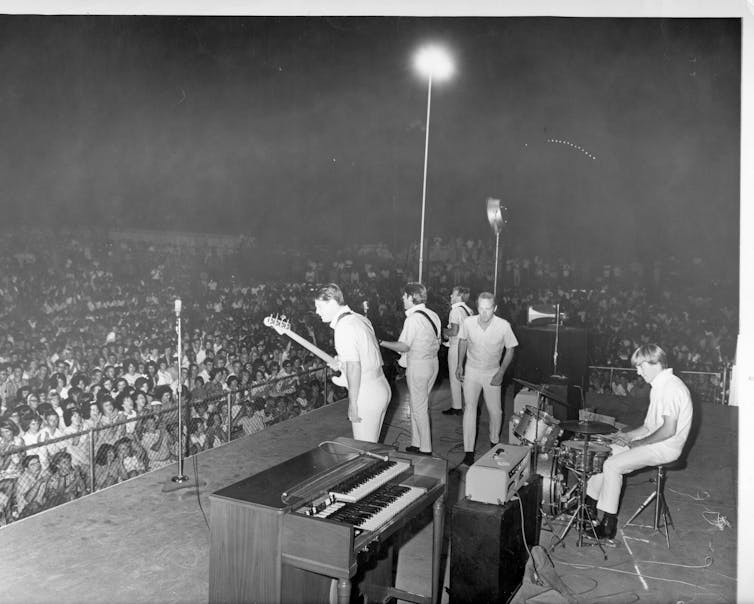
Michael Ochs Archives/Getty Images
I was fascinated by how a band could create such a groundbreaking volume of work and progress so quickly from the delightful, yet wobbly Surfin’ to the complex arrangements of God Only Knows.
To understand their music, I spent years listening to Beach Boys’ tracking sessions, take after take, to hear how their songs were so cleverly and delicately put together.
What struck me just as powerfully as the music itself was the sound of Brian Wilson’s voice in those recordings. Listening to Wilson leading hours of tracking sessions was to hear an artist at the top of their game – decisive, confident, funny, collaborative and deeply driven to make music that would express the magic he heard in his mind, and connect with an audience.
One of the more unexpected discoveries in my analysis of the Beach Boys’ music came from their lyrics. Using a word frequency tool to examine all 117 songs in my study, I found that the most common word was “now”.
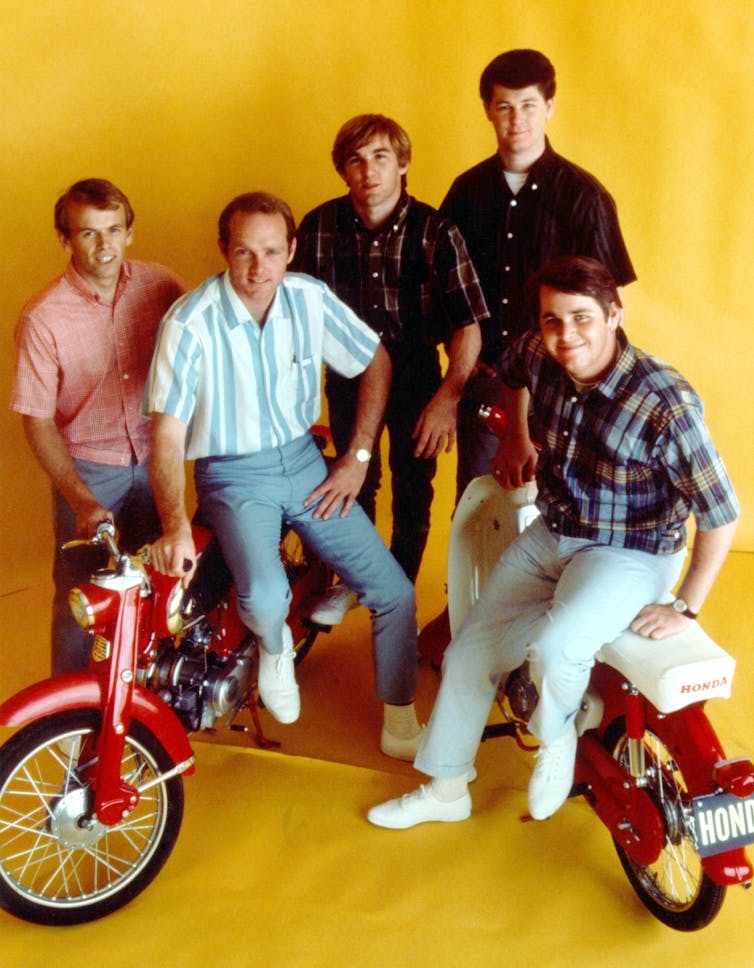
Michael Ochs Archives/Getty Images
In many cases, it appears in a conversational sense – “Well, she got her Daddy’s car, and she cruised through the hamburger stand now” – but on a broader level, it perfectly encapsulates what Brian Wilson’s music offered so many listeners.
He created an endless present: a world where the sun could always be shining, where you could feel young forever, and you could visit that world any time you needed to.
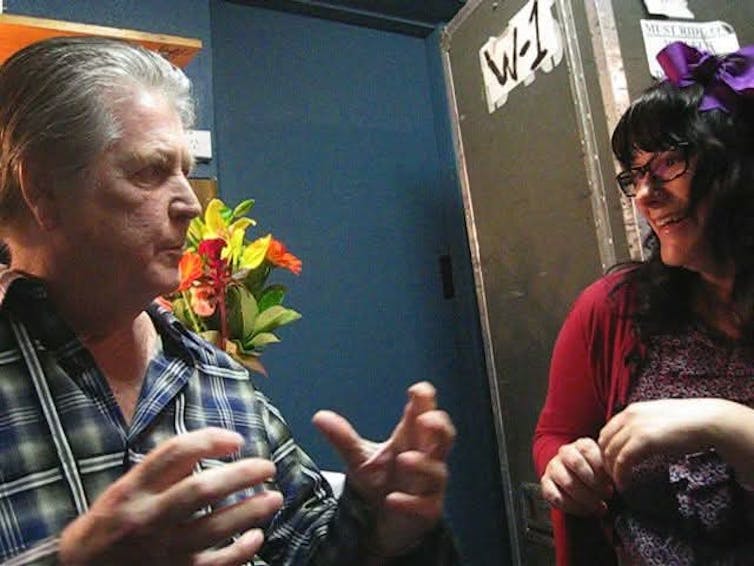
Jadey O’Regan
In 2010, I had the remarkable experience of meeting Brian Wilson in his dressing room before his performance at the Enmore Theatre in Sydney. He was funny and kind. He sat at a small keyboard, taught me a harmony and for a moment, we sang Love and Mercy together.
It was one of the most magical moments of my life. It is also one of Wilson’s most enduring sentiments: “love and mercy, that’s what we need tonight”.
Farewell and thank you, Brian. Surf’s up.
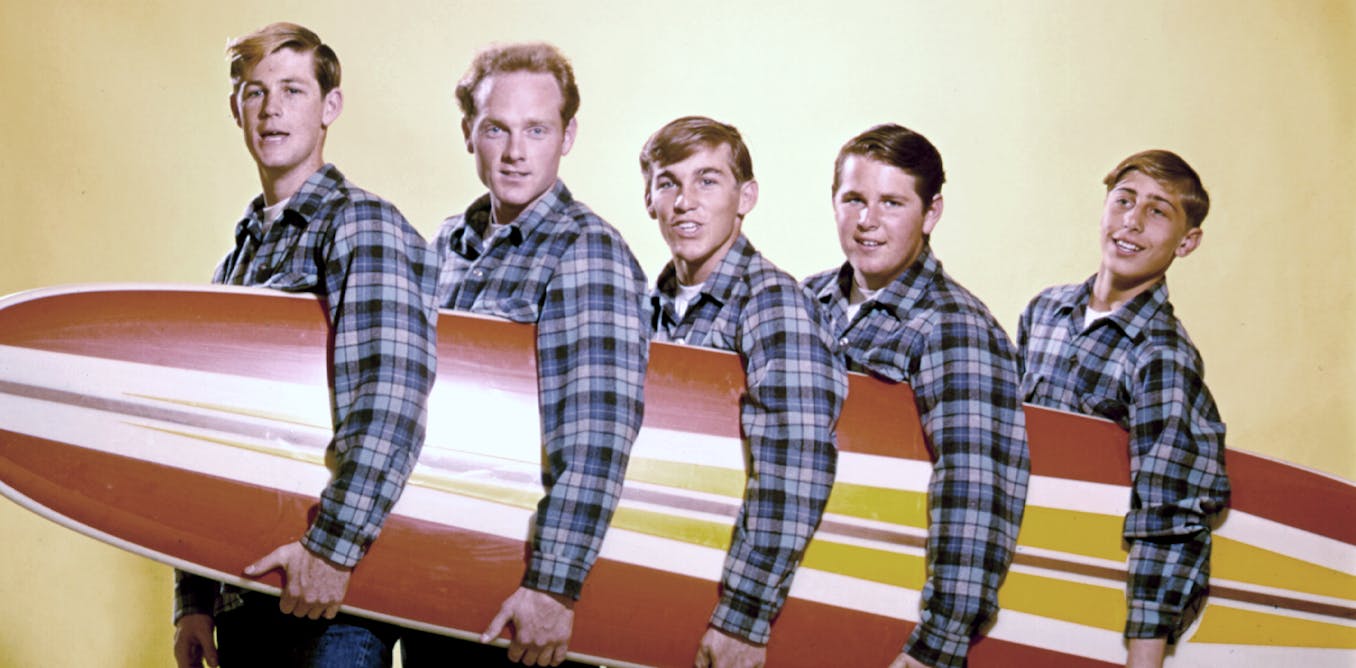
The post “How visionary Beach Boys songwriter Brian Wilson changed music – and my life” by Jadey O’Regan, Senior Lecturer in Contemporary Music, Sydney Conservatorium of Music, University of Sydney was published on 06/12/2025 by theconversation.com








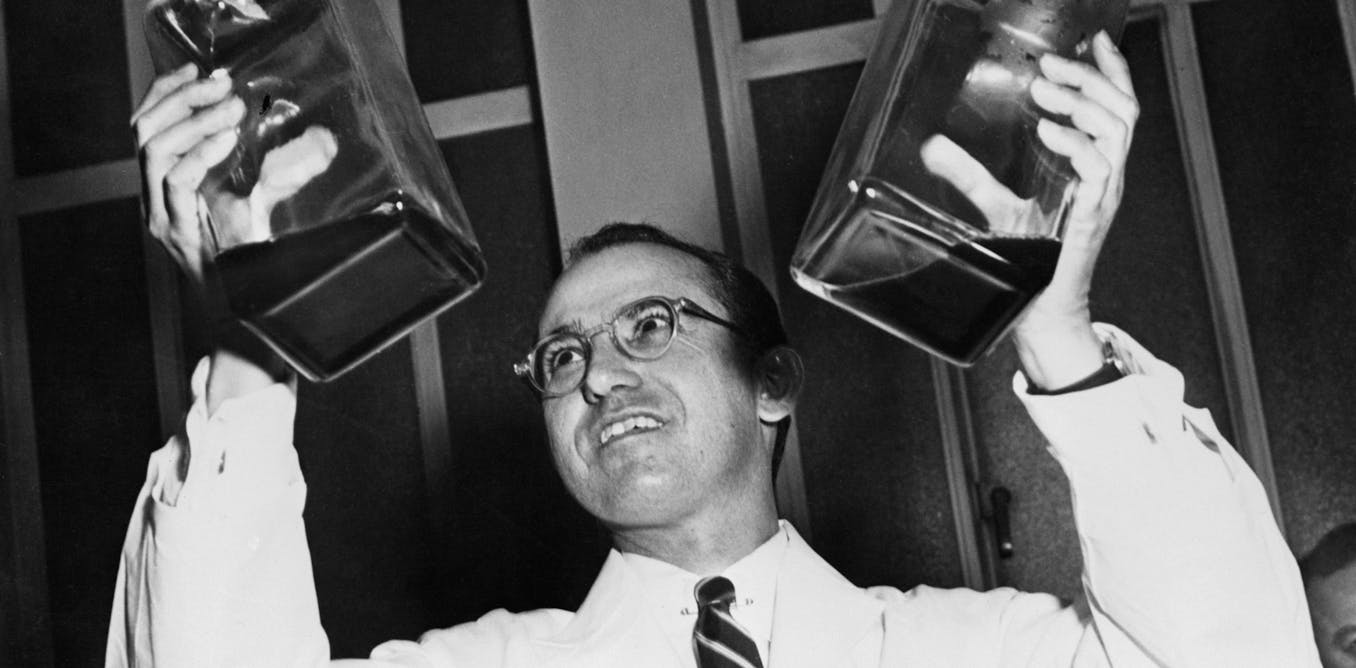



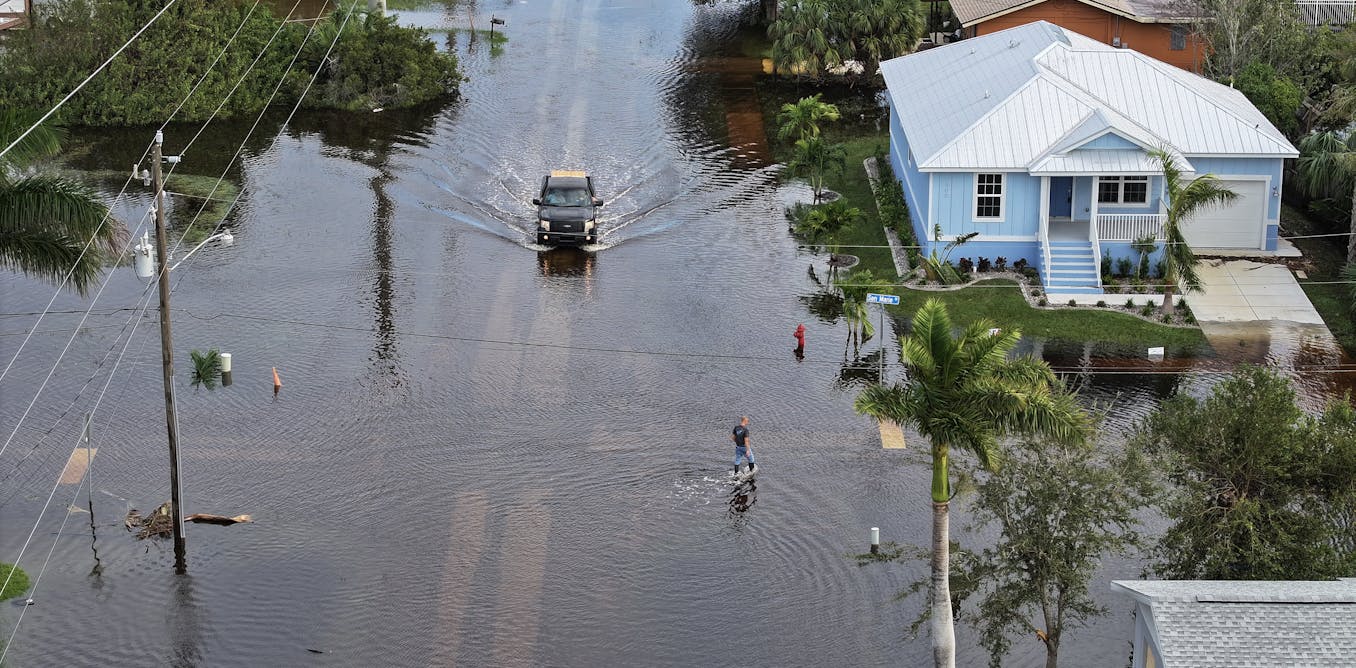























Leave a Reply